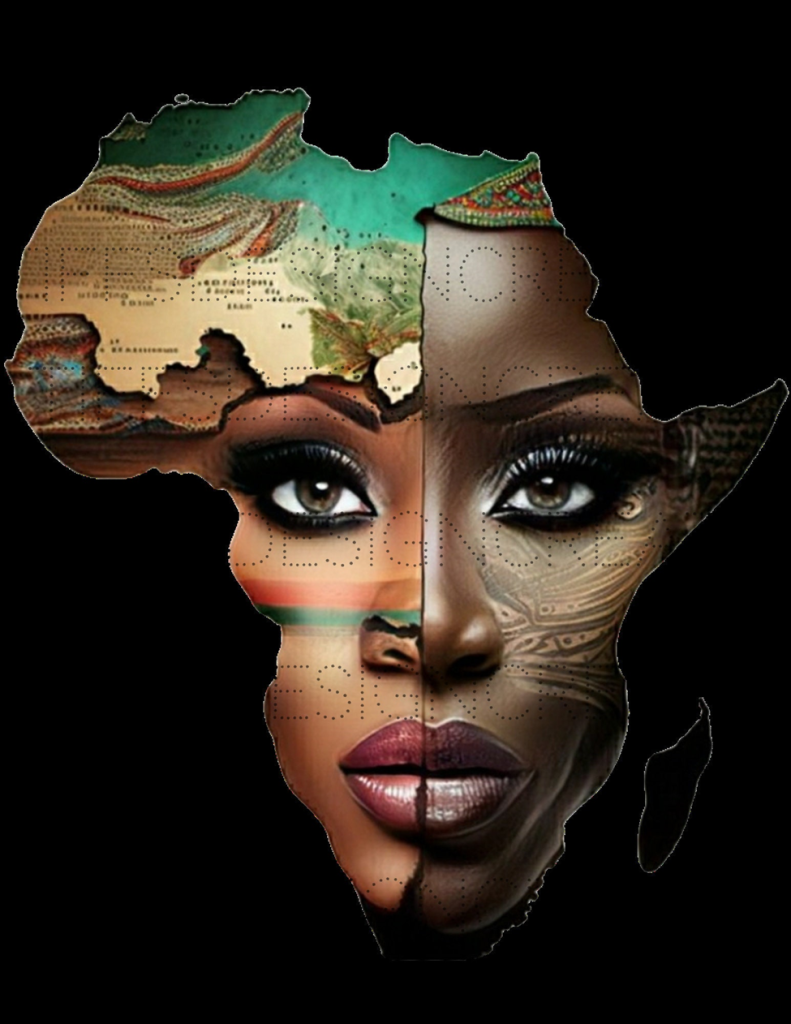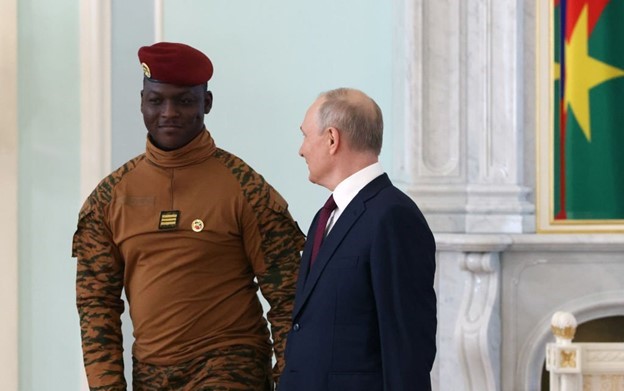An Akan Analogy
In the ancient Akan strategy game of Oware, players sow and capture seeds. Each player starts with 24 seeds distributed evenly among their six holes. A player takes turns picking up all the seeds from one of their holes and sowing them counterclockwise. That player captures all of the last seeds and lands in an opponent’s hole with four accrued seeds. The game ends when one player has captured over half the total 48 seeds.

Now, picture a version where one seed is replaced with a ticking time bomb. As nations make moves on the global stage, aligning with partners is like picking up seeds, unaware of which might be explosive. Just as in this high-stakes Oware variant, nations must carefully consider the consequences of their alliances to avoid catastrophic results.
The history of post-colonial Africa is rife with examples of leaders who are like players in a game of Oware. Kwame Nkrumah, Patrice Lumumba, Thomas Sankara, and a few minutes ago, Muammar Gaddafi, sought to steer their nations towards self-sufficiency and African unity. They picked up explosive seeds in the geopolitical game of Russian roulette.
History Does Not Always Have to Repeat Itself.
This article argues that while Burkina Faso’s pivot towards Russia and China may offer short-term benefits, such as military support and economic investment, it could carry long-term risks. Captain Ibrahim Traore must learn from the cautionary tales of past African leaders and navigate these treacherous waters carefully to avoid leading his nation into a geopolitical quagmire.
Historical Context and Shift
Burkina Faso was once inextricably bound to France. The echoes of its colonial past as part of French West Africa still reverberate, even six decades after independence in 1960. France continued to pull the strings, its influence permeating through aid and military might and then incomes Captain Ibrahim Traore.
But the times are changing
Captain Ibrahim Traore rides on the winds of anti-French sentiment, howling through the streets of Ouagadougou, Bobo-Dioulasso, and beyond. The people are tired of the neo-colonial chains, the exploitation, and the ineffective counter-terrorism efforts. In 2021, only 21% of Burkinabés held a favourable view of France, a staggering drop from 56% just four years prior. The attacks on the French Embassy and the French Institute and the suspension of RFI radio broadcasts are symptoms of a deeper malaise.
As Burkina Faso grapples with the consequences of its changing alliances, two global powers have emerged as potential partners, each offering unique opportunities and challenges.
The Russian Gambit
Russia, the mysterious bear, is leaving an indelible footprint across Africa. It promises non-interference and support without strings attached, offering food, security, and weapons. The Wagner Group, a dodgy private military company, is accused of undermining democratic stability and fueling resource conflicts. Between 2015 and 2021, Russia signed 27 bilateral military agreements with African partners.
Russia’s bold moves in Burkina Faso are evident, with the Russian flag symbolising a growing alliance. Moscow’s charm offensive is in full swing, capitalising on the failures of Western peacekeeping missions in the Sahel.

China’s Seductive Tapestry
China is weaving its influence in Burkina Faso through the Belt and Road Initiative. With promises of infrastructure and economic growth, China is positioning itself as a rule-maker and system-shaper, offering an alternative to Western hegemony. In 2022, China announced a $300 million investment in Burkina Faso’s infrastructure, including a new airport and expanded road network. The promise of prosperity and job creation is hard to resist.
As Burkina Faso aligns more closely with China, the potential impact on global trade and investment must be considered.
The Double-Edged Sword: Counter-arguments
Burkina Faso’s pivot towards Russia and China could have far-reaching consequences for regional stability in the Sahel. With extremist groups present and ongoing security challenges, the international community must closely monitor how this shift in alliances may affect counterterrorism efforts and the balance of power in the region.
In addition, Burkina Faso’s strategic partnerships with Russia and China offer potential benefits that address the nation’s pressing challenges in ways Western partners have failed to deliver.
Russia’s Tactical Advantage
Russia’s military expertise and willingness to provide weapons and training could give Burkina Faso a tactical advantage against jihadist insurgents. Access to advanced Russian weaponry and intelligence could bolster Burkina Faso’s regional standing and deter aggressors.
China’s Economic Lifeline
China’s Belt and Road Initiative offers transformative infrastructure development and investment that could kickstart Burkina Faso’s economy. New roads, railways, and industrial parks, financed by Chinese loans, could create jobs, stimulate trade, and attract foreign investment. Chinese mining, telecommunications, and agriculture investment could boost Burkina Faso’s key industries.

At what cost is Captain Ibrahim Traore neglecting the West?
On the other hand, Burkina Faso’s pivot towards Russia and China is a high-stakes gamble that could shape the Sahel region’s destiny for generations. While short-term benefits like increased security and investment may be attractive, overdependence could limit the nation’s ability to pursue its interests. The consequences of these partnerships could be far-reaching, echoing across the Sahel and beyond.
- Undermining Good Governance:
Russia and China’s interest in Burkina Faso is primarily transactional. They focus on access to resources rather than promoting good governance. Both nations have a history of supporting authoritarian regimes and ignoring human rights abuses. The international community may be concerned about the implications of Burkina Faso’s alignment with Russia and China on human rights and democratic governance. Both countries have faced criticism for their records in these areas, and the global community will scrutinise how this partnership affects political freedoms and civil liberties. - Exploiting Strategic Resources:
The alliance allows China to exploit Burkina Faso’s strategic resources, such as uranium for nuclear technology and platinum and coal tar for digital industries. This could lead to opaque deals, environmental damage, and the displacement of local communities, with little benefit to the Burkinabe people. Chinese control over critical resources may also undermine Burkina Faso’s sovereignty. - Financing Russia’s Aggression:
Burkina Faso’s partnership with Russia indirectly funds Russia’s military aggression in Eastern Europe, affecting NATO. Russian income from arms sales and resource deals with Burkina Faso may be channeled into funding the conflict, making Burkina Faso complicit in Russia’s destabilising actions on the global stage.
The biggest loser is the West, led by ruthless America, who neither forgets nor forgives. At some point, they will take their pound of flesh. No one knows the minute or the hour, but they and the world will know when that day comes.
Tiger’s Roar

Burkina Faso’s move away from traditional Western partners is a significant shift in the global geopolitical landscape. It is essential to consider how this realignment may affect the balance of power, particularly in the ongoing tensions between major global powers.
But is the West any better?
While the risks of aligning with Russia and China are significant, it is worth stating the West is not any better.
Firstly, the West has a long track record of supporting dictators and corrupt regimes in Africa when it serves their geopolitical and economic interests. From Mobutu Sese Seko in Zaire to Hosni Mubarak in Egypt, Western powers have often turned a blind eye to human rights abuses and democratic suppression.
Secondly, Western aid often comes with strings attached. Structural adjustment programs imposed by the IMF and World Bank have led to privatising public assets, dismantling social safety nets, and erosion of economic sovereignty in many African countries.
Moreover, the West’s military interventions in Africa, often framed as counter-terrorism efforts or peacekeeping missions, have frequently led to more instability and civilian casualties. The NATO intervention in Libya, for example, led to the collapse of the state and the proliferation of weapons and extremist groups across the Sahel region.
In this context, while the dangers of these new alliances are clear, the West’s record in Africa suggests that it is not the benevolent partner it purports to be.
As Burkina Faso navigates this complex geopolitical landscape, it must carefully weigh the costs and benefits of all its strategic relationships.
Fortune Favors the Bold
It is not death that a man should fear, but he should fear never beginning to live. – Marcus Aurelius
In conclusion, Burkina Faso faces a critical decision in aligning with Russia and China, which offers short-term benefits but COULD carry long-term risks.
Captain Ibrahim Traore stands at a crossroads that will shape Burkina Faso’s destiny. His choices today will reverberate across Africa and beyond. While the allure of Russian and Chinese power is strong, genuine self-determination requires prioritising his people’s needs above all.
This calls for a new breed of African leaders to forge their path, free from dependency. Invest in the youth, resources, and resilient spirits—trade empty promises for transparency and accountability to your citizens.
The road ahead is full of challenges but also great opportunities. Burkina Faso’s future, like Africa’s, hangs in the balance. Seize this moment to build a brighter tomorrow defined not by foreign exploitation but by your resolve and commitment to progress.
The time to act is now. Dream boldly of the Africa you deserve.
A Chink in the Armour
Note to Captain Ibrahim Traore: You must be vigilant against those undermining your vision for a self-reliant Burkina Faso. The lessons you have learned from the tragedies of Nkrumah, Lumumba, Sankara, and Gaddafi are more relevant today than ever.
It took the West only 274 days to annihilate Muammar Gaddafi, approximately 9 months. It took them only 92 days to kill Patrice Lumumba and dissolve his body in sulphuric acid. Kwame Nkrumah died in exile like a beggar.
Listen, Captain. We admire you—the whole of Africa does—but underestimating the West is like underestimating the devil. Stay vigilant!
The Akans say — Aboa bi beka wo a, na ofiri wo ntoma mu.
Twi Translation
If an animal bites you, it will be from your clothes. The people who will harm you likely are those close to you. Those closest to you can hurt you the most because they know how best to do it.




